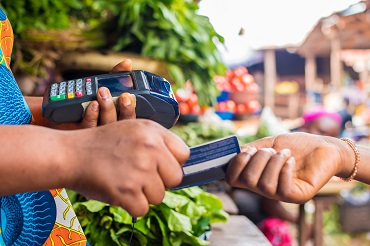Blog
Blog - Supporting Firms: From Crisis to Recovery

This webinar was carried out by the World Bank on April 15, 2020, as part of the COVID-19 Pandemic FCI Webinar Series to discuss the implications and policy responses to support the private sector and financial sector in the context of COVID-19. (See the list of speakers at the end of this post)
The discussion followed an agenda around firms' affectations due to COVID-19, lessons learned from previous crises, policy responses, financial sector solutions, and some country case studies.
How COVID-19 is affecting firms and policy responses
Leonardo Iacovone argued that supporting firms is prominent because the ongoing crisis is an exogenous and very large shock, with potential productivity losses due to the closure of productive firms, the propagation of adverse impacts via financial markets and value chains and because supporting firms also means supporting workers. Policy strategies should consider actions in two phases: the immediate response (0-6 months) and the recovery phase (next 18 months). The shock transmission channels to firms (demand, supply, financial, and uncertainty), have heterogeneous impacts, both between sectors and within countries (and regions inside countries), and there is a more vulnerable type of firms such as smaller and less formal firms or younger firms and startups.
Lessons from previous crises and stocktaking of today's policy responses
Iacovone provided examples of cash grants that helped firms to recover much quicker after the tsunami in Sri Lanka (2004) and a wage subsidy program for firms in Mexico (during the 2008 crisis), conditional on keeping workers, with positive effects on smaller average firm size.
Ernesto Lopez Cordova emphasized the time frame for actions. In the immediate response phase, he highlighted the importance of maintaining the access to finance for firms, ease and postpone tax obligations, avoid closures, address liquidity challenges, reduce the cost of intermediate inputs and final goods, and support systemically essential firms. Likewise, Ernesto shared the World Bank findings collected in the Map of SME-Support Measures in Response to COVID-19. For 104 countries analyzed, the most common instruments adopted to support SMEs were: debt finance tools (38%), mainly new lending under concessional terms, employment support (29%), primarily wage subsidies, and tax support (15%). For the recovery phase, Ernesto shared that the actions should set the foundations for productivity-driven growth, including restoring credit flows to boost investment, reactivate trade flows and value chain participation, recalibrate tax incentives toward promoting investment, redirect fiscal support to temporary job creation programs, and SME programs to promote firms and productivity growth.
Specific financial sector solutions to assists firms
Mahesh Uttamchandani commented that policy responses should alleviate the shortage of liquidity and working capital, stimulate bank lending, leverage fintech solutions, and introduce complementary measures to address MSME insolvency. Ghada Teima deepened on fintech solutions and the advantages that those types of companies can bring for SMEs, such as faster approvals and disbursements. To boost this fintech collaboration, governments should leverage them and support their expansion. As well, Ghada went through the partial credit guarantees as a typical government intervention designed to help SME financing due to its ability to quickly scale up and as a tool for loss mitigation for lenders, not without sharing some considerations that policymakers should keep in mind such as moral hazard issues.
Pietro Calice, went over the lines of credit, providing pros and cons of this traditional financial tool, mentioning, for example, the risk trade-offs taking by governments and lenders so that low-risk requirements for lenders would imply a moral hazard, but high-risk requirements represent an obstacle for lenders, resulting in additional collaterals for enterprises (which don’t have them in the current situation). As emerging good practices, Pietro mentioned the relevance of developing and distributing specific guidelines so that lenders use credit lines to finance the target population, including NBFIs in the policy prescriptions, to collect data on loan recipients so that they are promptly submitted with the request for funding, and if speed is the most critical variable, try to work with the lenders to eliminate collateral requirements.
About risk capital, Pietro commented that the availability of risk capital and quasi-equity instruments would be crucial to restore creditworthiness and prop up investment. In this task, governments can help by stimulating the supply of risk capital. Pietro provided examples of the “fund of funds” in Peru, loss-sharing mechanisms in the United States, and removing investment restrictions.
Selected country cases studies (Malawi, Ecuador, Colombia, DRC, Brazil, and Egypt)
Malawi. Randa Akeel, explained the actions taken in the country to support the private sector during COVID-19. Commercial banks are providing a 3-month moratorium on interest and principal repayments of loans by borrowers, restructuring, refinancing or renegotiating loans for corporates and MSMEs, among other measures. The Registrar of Financial Institutions also reduced the liquidity reserve requirements on domestic currency deposits and reduced the Lombard Rate margin by 50%, among others. The World Bank is implementing four components to increase access to financial services, promote entrepreneurship and capabilities of MSMEs. Component one enhances liquidity for MSMEs, including credit lines from the Reserve Bank of Malawi to banks, microfinance institutions, and savings and credit cooperatives; likewise, risk capital and de-risking for younger and innovative firms. Component two includes grants and support to Business Development Services providers to scale entrepreneurship and firms' capabilities. Component three implies enabling environment and financial inclusion through payment systems, credit infrastructure, etc. Component four refers to project implementation support through communication, monitoring, and evaluation, etc.
Ecuador. Pietro Calice started saying that the country is an example of limited fiscal space giving its dollarized economy and its strong dependence on oil revenues. However, the Government has taken measures to address the impact of the crisis with actions such as authorizing state-owned banks to provide subsidized credit to the real sector, with the caveat that given the precarious funding structure of state-owned banks, the Government is using the main pension fund administrator to fund the credit line. The World Bank is working with the Government to extend a line of credit to Corporacion Financiera Nacional, a state-owned bank, for on-lending to MSMEs and to capitalize a guarantee fund.
Colombia. Pietro Calice mentioned that the Government adopted several measures to strengthen existing state-owned financial institutions to provide liquidity to firms. Bancoldex, a commercial bank, has been authorized to provide direct subsidized lending and has introduced four new credit lines with an emphasis on the airline industry, tourism, entertainment, microentrepreneurs, and firms with a regional focus. Findeter, a state-owned bank, has been authorized to provide direct subsidized lending and has developed new credit lines for that purpose. FNG, a national guarantee fund for MSMEs, has received a capital increase from the Government and has introduced some changes to its operational parameter, including increased coverage from traditional 50% to 80% for some categories, maturity extension, and waiving of fees for the first year.
The Democratic Republic of the Congo. Natalia Agapitova explained the problematic situation in the country: most people are employed by informal micro-enterprises in rural areas, therefore, because of limited data, it has been tough to identify who needs support. Natalia mentioned three options that the World Bank presented to the Government as potential support measures. First, tax relief, including a temporarily lifting of tax collection since most of the tax collectors travel across the country, reducing the spread of the disease as well. The second option is cash transfer that will be using the existing operations on rural agricultural activities. The third one is the credit lines that the Bank can deploy “relatively quickly”, she said.
Brazil. Xavier Cirera, said that the country is facing a tremendous shock with heterogeneous impacts, affecting sectors and states with various intensity. There is a broader exposure in lower-wage deciles and female workers, and a more significant exposure on micro and small firms (between 39% and 56% of MSMEs are likely to have less than 21 days cash reserves). To tackle the adverse effects, the Federal Government in the country launched an ambitious support program that consists in increasing the access to finance through credit lines for wage payments and production, among others; taxes measures such as deferrals on tax credits, labor measures such as subsidies to compensate wages reduction and vouchers (coronavoucher) including for informal micro-entrepreneurs and self-employed.
Egypt. Laila Abdelkader, said that the Government adopted several policy measures, responding rapidly to the liquidity needs. The Central Bank of Egypt issued a series of circulars, including reducing rates by 300 basis points, deferring credit or payments for individuals and firms, among other measures. The Financial Regulatory Authority (NBFI regulator) extended grace periods and for microfinance serving informal firms is allowing writing off on a case by case basis, etc. The MSME Development Agency launched an initiative providing a one-year emergency loan. The World Bank's help has focused more on the health and social protection front, as well as leveraging the existing portfolio in the country, exploring financial inclusion and guarantee schemes.
If you want to know more about the actions that the World Bank has taken so far to support countries around the world, take a look at the World Bank Group's Operational Response to COVID-19.
List of speakers from the World Bank: Denis Medvedev, Practice Manager; Mahesh Uttamchandani, Practice Manager; Ghada Teima, Lead Financial Sector Specialist; Jose Ernesto Lopez Cordova, Lead Economist; Laila Abdelkader, Financial Sector Specialist; Leonardo Iacovone, Lead Economist; Natalia Agapitova, Senior Economist; Pietro Calice, Senior Financial Sector Specialist; Randa Akeel, Senior Financial Sector Economist; and Xavier Cirera, Senior Economist.
The basis for the discussion was the recently produced guidance note entitled: Assessing the impact and policy responses in support of private-sector firms, produced jointly by the Finance and TIC global teams of the World Bank.

















